I have a new novel out this month, on 17th September. It’s called Unknown Language. It’s about a crisis that signals the end of the world, and a public health official who looks to escape this certain destruction by looking beyond her world to something else; to escape, queerness, nature and grace. It’s also some of the most collaborative work I’ve ever done, written alongside and influenced by the visions of the 12th century nun, mystic, and polymath, Hildegard of Bingen. It includes an amazing introductory story by Bhanu Kapil and an afterword on the life of Hildegard by Alice Spawls. You can buy it direct from the publisher, Ignota Books. While you’re there, check out some of their other great books, including States of the Body Produced by Love by Nisha Ramayya and The Carrier Bag Theory of Fiction by Ursula K. Le Guin. In the meantime, on with today’s essay...
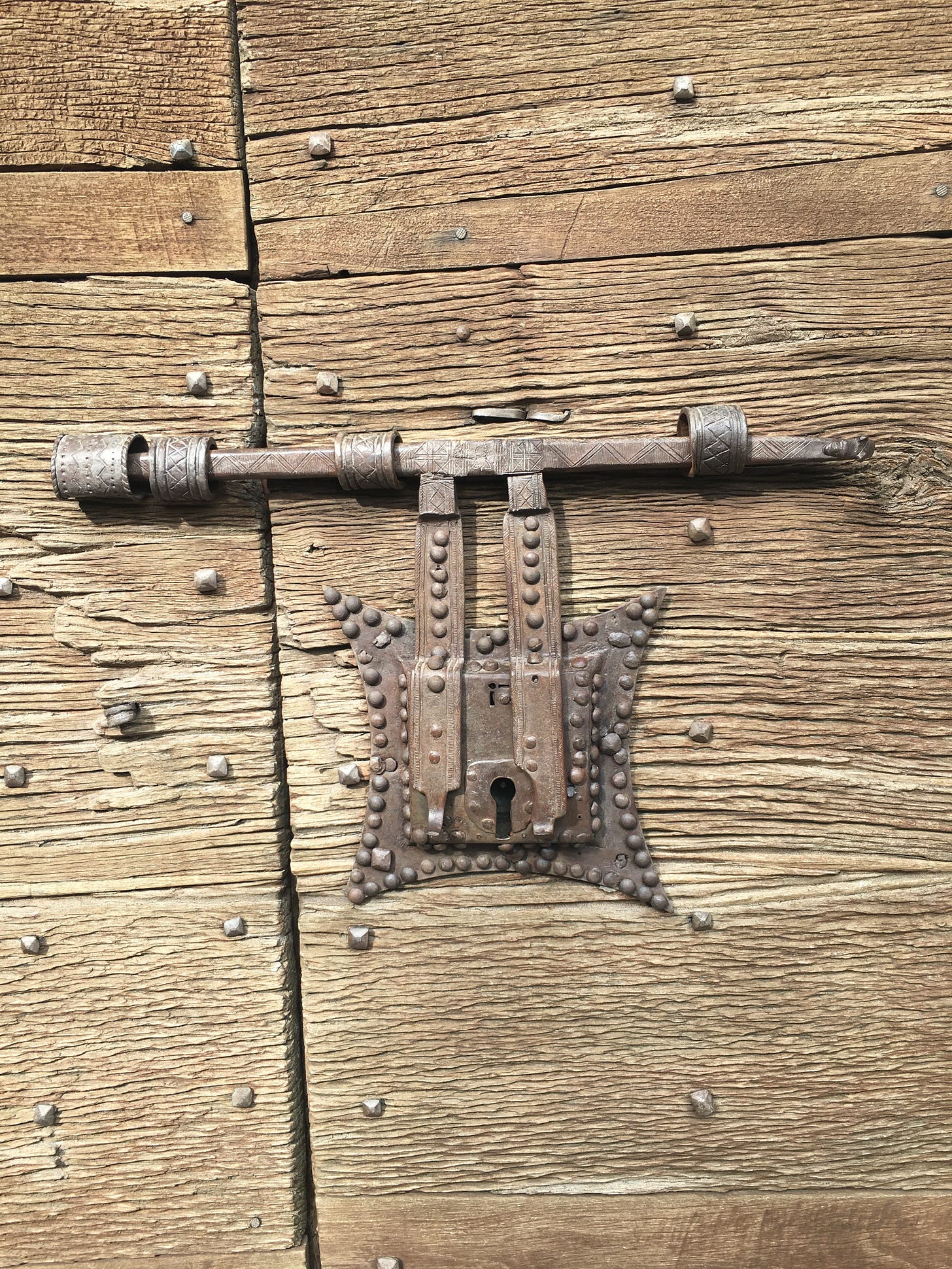
Summer is an intoxicating moment of romance in the narrative of our lives. Winter’s heavy tomes, worthy and productive, are put back upon the shelf of the public library, and as late spring arrives, we excitedly browse the cheap paperback romances on the newsstand beneath the plane trees. Their bright pastel covers in pink and mint sell themselves a potential summer to us. This summer, we tell ourselves, we will fill with barbecues in the park and swimming in ponds, or I will fall in love with many bodies many times, and so on. And then we choose our summer, and it surprises us, or its promises disappoint us, as cheap paperbacks often do. But this summer never promised us anything, and certainly not romance.
Cheap metaphors about cheap paperbacks don’t make sense for this summer. I might be tempted to reach for the image of an 80s sci-fi dystopia, with its international health crisis and nascent big screen fascism, but it has been too messy for such slickness. From mid march we were confined to our apartments by the regional government as the pandemic began to reach the city. From the fifth floor I watched the empty streets, save for the sanitation workers and the police vans, who added to their mournful sirens pre-recorded messages reminding citizens to stay home and save lives. I was finished the last of the edits on my new novel, completed well before the pandemic rose, about a city living under lockdown following a divine punishment. Each edit seemed to gnaw a little at the bone, describing and redescribing, then cutting, a darkened vision of our world where the human remnants of the mediaeval are, in fact, not dead and buried, even if the stones are. In the evenings I would stand on my balcony and watch in the golden hour the little triangle of mountainside visible between the buildings, and think about escaping.
From this fictional world of disease and policing, I wanted to escape. Escapism — real escapism, the escapism of paperbacks —seems to have a bad name these days. I remember a few years back the reaction to the movie Call Me By Your Name, where online gays seemed to be railing against its almost obsessive focus on the transient beauty of the farmhouse, the fields, and the boy, a tendency dismissively labelled as escapist. “What about the age gap?”, they asked, ‘And what about the disgust? What about the unremiting horror of our homosexuality?’ I thought that was the point. I thought the fetishisitic triumph of the aesthetic, the perfect, the soft, the hot and lingering, I thought that was not just part of the gay sensibility, but the best bit, the bit that transformed the horror. I thought that when you lay by the pool beneath the azalea blossom, and watched the sweat form on the back of your impossibly handsome lover as he sipped from his mineral water, I thought the bit where you cum inside the peach, I thought that was the bit where you sigh and say well, at least I’m not straight. But some people don’t want you to escape. “Stay,” they seem to say, “stay here, trapped with me.”
I feel guilty for having fallen for escapism, and for wanting to escape, at exactly the moment when it has become indefensible. But I feel compelled to move towards it, and as I think about it, I realise it’s not because I want to escape the real world, to ignore the concretely political. I just want to escape thinking of it only directly, face on. It might be because, after years of obsessing about the political aesthetic, the slogans and banners, the labels and discourse, I felt like it, and I, actually obscured something more politically meaningful in life. Perhaps what is meaningful in escapism is the world that is implicitly missing, escaped from. When people criticise Call Me By Your Name for its absence of acknowledgment of the a certain type of gay politics, they are ignoring what is political in imagining a world without the need for that politics, an escapist world of desire that can address the potency of queer teenage realisations without the heavy weight of what follows, what we know comes with the realisations. Or perhaps that I want to discover, in my novel attraction to escape, everything I feel I missed about my interactions with the world when I was consumed with the slogans, the banners, and anger. That that might something good, valuable, with something to teach me.
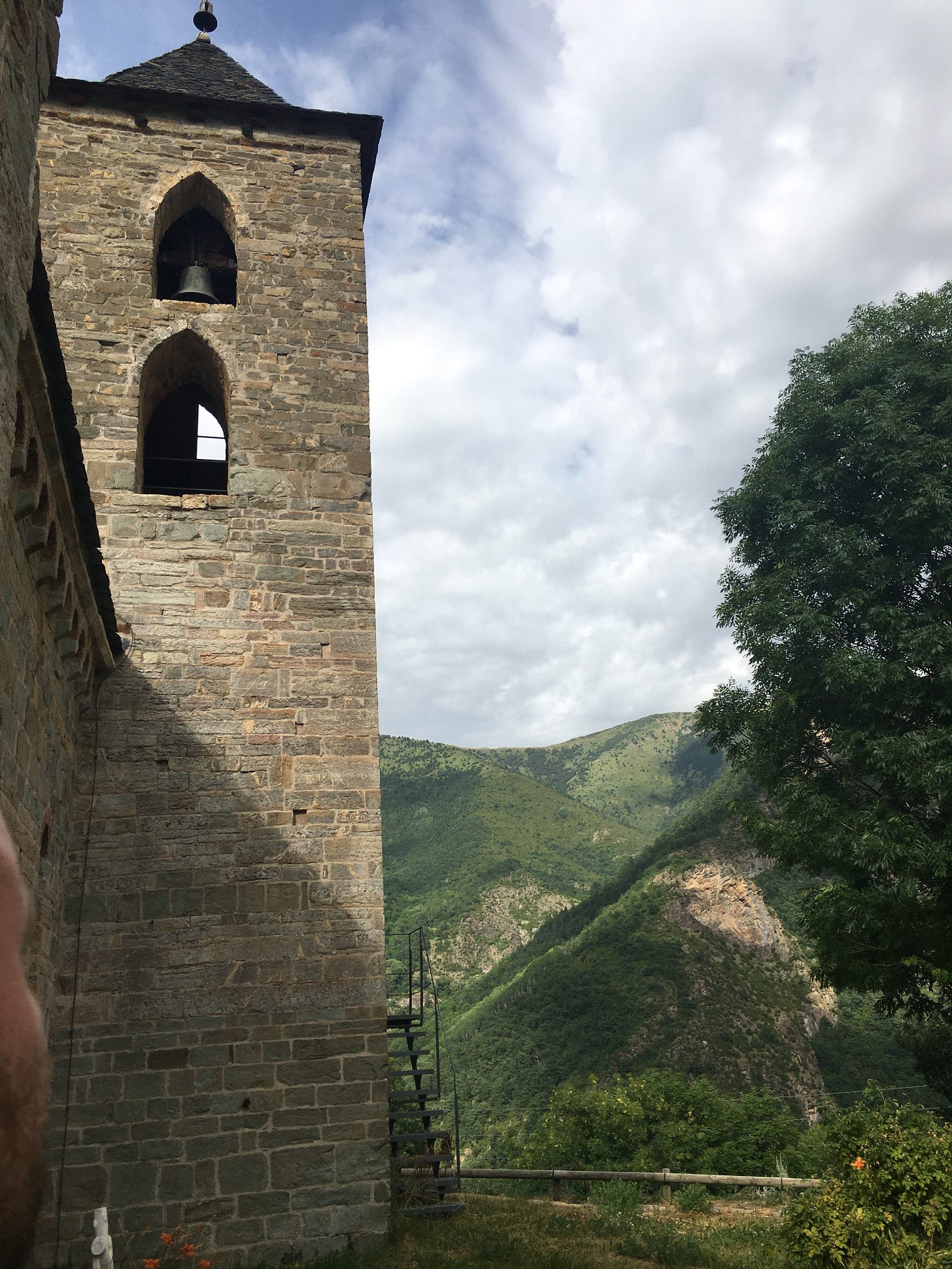
Finally the lockdown in the city lifted, stage by stage, and by early July we could get out. I had a place I had to go to, not for any real reason, except that from the moment I arrived in the city, I had felt an urge to visit that simply wouldn’t go away. A vocation for a place is known, I suppose, as a pilgrimage, so let us call it that. I wanted to take a pilgrimage to a valley at the top of the territory that I’d read about. It is sparsely populated today, but its secluded location, pushed up against the Pyrenees mountain range which marks the border between France and Spain, was once its strongest point, and in the early mediaeval era it was a centre for aristocratic families who had made themselves wealthy off local silver deposits and endless war against the Muslims to the south. Blessed by God with bounty, they poured some of their money into his worship, building nine or ten churches and hermitages in the valley between the 11th and 13th centuries. The valley’s geopolitical location, the marches between first the Franks and Muslims, and then between the French and Spanish, was a sort of permanent borderland for a territory that had links across the Mediterranean, giving these churches an almost unique architectural and visual culture, part of the movement known as the First Romanesque. Many were adorned with stunning murals from a school of local artists, murals I’d seen in the city. After working so long on a book situated in this imaginative world, torn between the city and its hinterland, I had to see them, and for the period of lockdown, they were my escapism, along with the valley itself, my link with something unknown that might have some deeper significance as an idea of pleasure, of hope.
On arrival at the valley, then, as our hire car crept up the tight curves towards the small village of Coll, I was surprised that a hopeful future was marked as much by memories of the past. The humidity of Barcelona, on the Mediterranean coast, had given way to the fresh coolness of the mountains. Above us, clouds bloomed high and fluffy into the atmosphere, crisply white, while the edges of the steep, twisting roads were dotted with the same black, white and red snowmarkers from the high roads in Cumbria, where I was raised. Along the valley bottom was a river, intermittently breaking out into ponds where weirs and dams contributed to the area’s extensive 19th century and Franco-era hydroelectric infrastructure, but the valley sides were still broken up into small and ancient meadows marked out by low dry stone walls. It was midsummer, and the grasses were long and the days languorous. I felt immediately at home, but home in some unplaceable way. The valley sides were too steep to be Cumbria, the rock too sharp, and the occasional jangle of cowbells or hiss of crickets made it unmistakable for England. But the deep cut paths between the ancient field boundaries hit some part of my lizard brain and spoke “childhood” in the most fragmentary and perfect way. I remembered, passively. I remembered with that memory that can pull you like a tide, remembered walking through the hedgerows with my mother towards the old ford that crossed the river, or the bluff on which sat the church of my valley, St Paul’s, from which you could see from the peatbog to our own blooming clouds. I didn’t look for it, but it came.

We parked on the edge of the village, by the church, Santa Maria de l'Assumpció de Cóll. The streets of the tiny hamlet were deserted but we were welcomed by a beautiful dog, curious and friendly, standing sentinel while the villagers slept. We ran our hands through her thick collar hair and they came away smelling rich and oily, like my old dogs used to smell. It was warm and sunny as we sat with her beneath a fruit tree, and we had nowhere to be, and nothing to do but look around. It certainly felt like an escape, and that was its importance and power. The church was locked — something we’d come up against time and again in the valley — but it didn’t seem to matter. The small churchyard was a sanctuary in itself, and we sat for a moment, looking at the series of small blind arches that ran around the top of the walls, beneath the eaves. These blind arches running in an arcade are known as a Lombard band, and are a typical feature of Romanesque architecture in Catalonia, as are the Corinthian capitals on top of the columns by the portal, rising from the round base to a square top. The portal recedes through a series of semicircular arches, and seem to draw the worshipper from the bright, expansive scale of the enormous valley as if into a darkened cave, lit by a single oculus, a round window above the door, and a thin sliver of window behind the altar. It’s a different, darker type of space inside these small churches, a different world of imagination to that of the daily agricultural world of labour and custom outside. It is fearful. Between the portal and the oculus was a carved Chi-Rho, the Greek symbol of Christ, surrounded by two human faces, two flowers, and two songbirds. Had we been worshipping, we would pass beneath it.
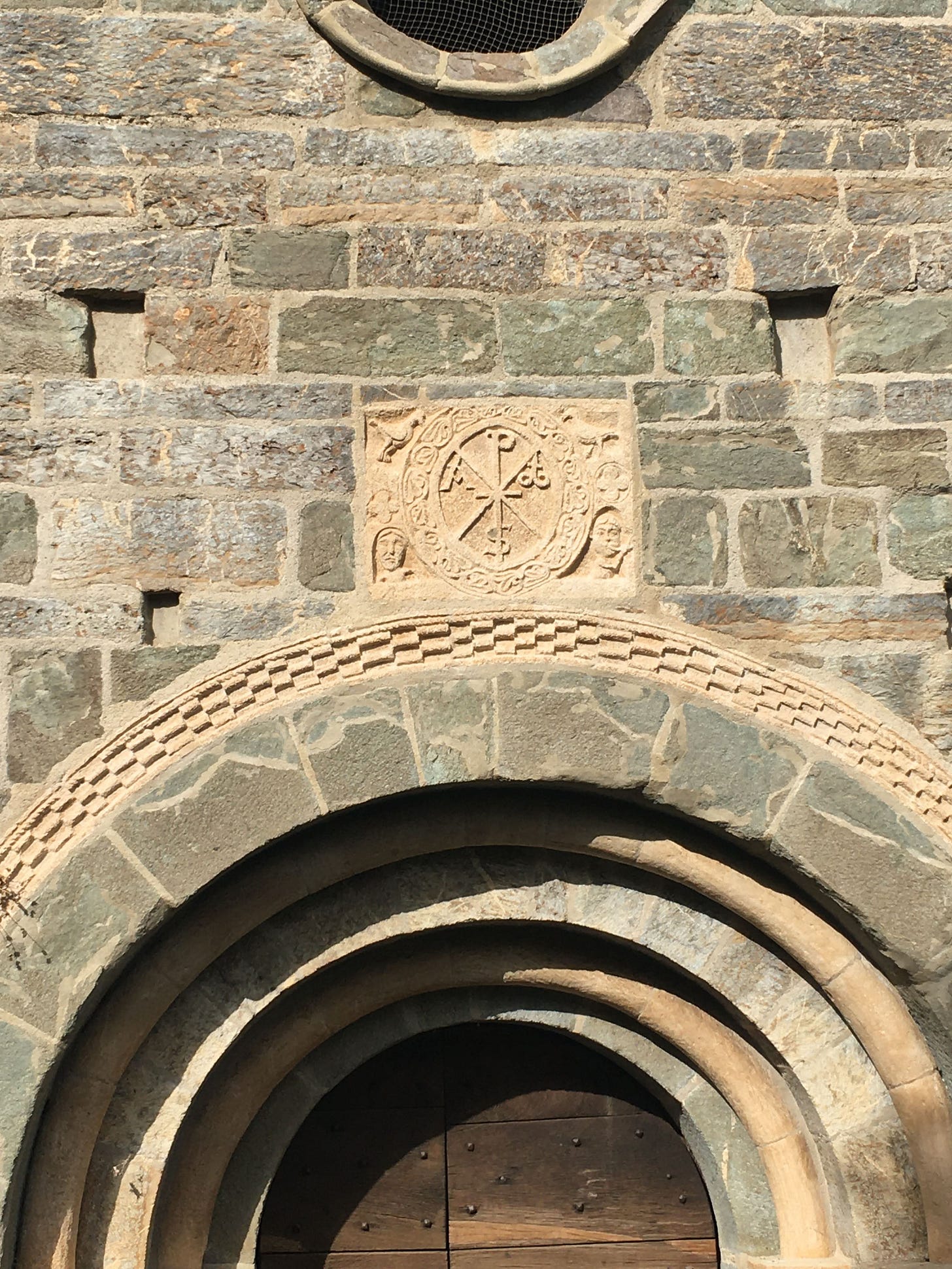
Sunlight dappled the door, firmly shut with a beaten mediaeval lock. We sat for a moment, and I was struck by how little I cared about being locked out of the darkness. It seemed that whatever was inside wasn’t for me, but out here, this little church, compact and unmoved, that had sat here for 900 years, gave me enough. That moment of warm, late afternoon sunlight, birdsong, a dog who came to say hello, was enough of an escape to open up a new perspective on what I might be looking for, whether that’s political, of our lives, or religious, outside of them. Perhaps I could climb the wall of the apse, and get a glimpse in, and see from an angle. Sometimes it’s looking from an angle that opens up the space. I looked forward: other churches, I thought, will let me inside.
When I got home I took my camera film to be exposed. In Spanish, negatives aren’t developed, they’re revealed. My film had sat in there too long — it had been years since I last took a real photograph. I took my camera because I knew I’d want to capture textures my phone simply couldn’t. I’ve included some here, despite the blurring colours and bleeding light, because they’re real enough. Over the coming weeks I’ll write more about this extraordinary little valley, its complex history, and this set of churches that seem as though they have survived the end of the world again and again. If you’d like to read all the essays, please subscribe.
‘utopian drivel’ is a weekly essay series by Huw Lemmey. Please feel free to share and forward today’s newsletter with anyone who might be interested. For those just visiting, I send out a newsletter/podcast (about) once a week to paying subscribers — for less than $5 a month — and once a month for free subscribers. You can subscribe here, and, if you like it, please hit the like button. It helps other people find my newsletter.





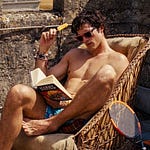


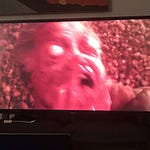

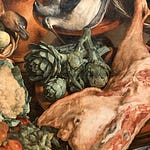

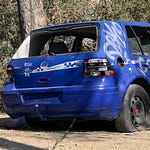
Share this post